
Bonn, Germany, 2nd September 2019
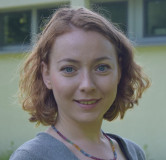 Zeynep Akata is an assistant professor with the University of Amsterdam, Scientific Manager of the Delta Lab and a Senior Researcher at the Max Planck Institute for Informatics in Germany. Her research interests include machine learning that combine vision and language for the task of explainable artificial intelligence (XAI).
Zeynep Akata is an assistant professor with the University of Amsterdam, Scientific Manager of the Delta Lab and a Senior Researcher at the Max Planck Institute for Informatics in Germany. Her research interests include machine learning that combine vision and language for the task of explainable artificial intelligence (XAI).
 Michael Beetz is a professor for Computer Science at the University Bremen and head of the Institute for Artificial Intelligence (IAI). IAI investigates AI-based control methods for robotic agents, with a focus on human-scale everyday manipulation tasks. With his openEASE, a web-based knowledge service providing robot and human activity data, Michael Beetz aims at improving interoperability in robotics and lowering the barriers for robot programming.
Michael Beetz is a professor for Computer Science at the University Bremen and head of the Institute for Artificial Intelligence (IAI). IAI investigates AI-based control methods for robotic agents, with a focus on human-scale everyday manipulation tasks. With his openEASE, a web-based knowledge service providing robot and human activity data, Michael Beetz aims at improving interoperability in robotics and lowering the barriers for robot programming.
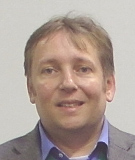 Sven Behnke is professor for Autonomous Intelligent Systems at the University of Bonn and director of the Institute of Computer Science VI. His research interests include cognitive robotics, computer vision, and machine learning.
Sven Behnke is professor for Autonomous Intelligent Systems at the University of Bonn and director of the Institute of Computer Science VI. His research interests include cognitive robotics, computer vision, and machine learning.
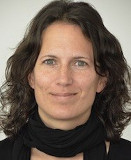 Maren Bennewitz is professor for Computer Science at the University of Bonn and head of the Humanoid Robots Laboratory. The focus of her research lies on robots acting in human environments. Her group develops techniques that allow robots to adapt their behavior to the environment and to the surrounding people thereby exploiting semantic information about objects and information about the activities of users.
Maren Bennewitz is professor for Computer Science at the University of Bonn and head of the Humanoid Robots Laboratory. The focus of her research lies on robots acting in human environments. Her group develops techniques that allow robots to adapt their behavior to the environment and to the surrounding people thereby exploiting semantic information about objects and information about the activities of users.
 Anne Driemel is professor for Theoretical Computer Science at the University of Bonn and HCM Bonn Junior Fellow. Her research interests include discrete and computational geometry, algorithms and data structures, and trajectory and time series analysis.
Anne Driemel is professor for Theoretical Computer Science at the University of Bonn and HCM Bonn Junior Fellow. Her research interests include discrete and computational geometry, algorithms and data structures, and trajectory and time series analysis.
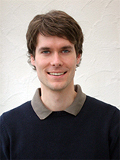 Juergen Gall is professor and head of the Computer Vision Group at the University of Bonn. He is spokesperson of the DFG research unit FOR 2535 - Anticipating Human Behavior and his research interests include human pose estimation, video analysis, and forecasting.
Juergen Gall is professor and head of the Computer Vision Group at the University of Bonn. He is spokesperson of the DFG research unit FOR 2535 - Anticipating Human Behavior and his research interests include human pose estimation, video analysis, and forecasting.
 Jan van Gemert is an assistant professor and head of the Computer Vision Lab at the Technical University Delft. His research interests include image analysis, visual encodings, image and video categorization, action and object recognition and localization.
Jan van Gemert is an assistant professor and head of the Computer Vision Lab at the Technical University Delft. His research interests include image analysis, visual encodings, image and video categorization, action and object recognition and localization.
 Reinhard Klein is professor for Computer Graphics and director of the Institute of Computer Science II at the University of Bonn. The group covers topics in geometry processing, scientific and geospatial visualization, photo-realistic rendering and physics based animation.
Reinhard Klein is professor for Computer Graphics and director of the Institute of Computer Science II at the University of Bonn. The group covers topics in geometry processing, scientific and geospatial visualization, photo-realistic rendering and physics based animation.
 Norimasa Kobori is senior manager of the Robotics Group at Toyota Motor Europe.
His team is developing the computer vision technology for service and humanoid robots.
His research interests include 6D Object Detection, SLAM, and Activity Recognition.
Norimasa Kobori is senior manager of the Robotics Group at Toyota Motor Europe.
His team is developing the computer vision technology for service and humanoid robots.
His research interests include 6D Object Detection, SLAM, and Activity Recognition.
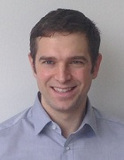 Matthias Nießner is professor and head of the Visual Computing Lab at TU Munich.
His research is oriented towards the generation of 3D models of real-world environments using video and range cameras.
Matthias Nießner is professor and head of the Visual Computing Lab at TU Munich.
His research is oriented towards the generation of 3D models of real-world environments using video and range cameras.
 Andreas Weber is professor for Practical Computer Science and head of the Multimedia, Simulation and Virtual Reality Group at the University of Bonn. His research interests include physics based modelling and animation.
Andreas Weber is professor for Practical Computer Science and head of the Multimedia, Simulation and Virtual Reality Group at the University of Bonn. His research interests include physics based modelling and animation.
Prof. Dr. Jürgen Gall
University of Bonn
Institute of Computer Science
Computer Vision Group
Endenicher Allee 19a
53115 Bonn, Germany
E-mail: gall@iai.uni-bonn.de
Despite careful content control we assume no liability for the content of external links. For the corresponding content of linked pages, their administrators are responsible.